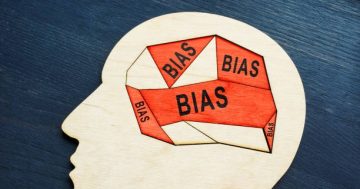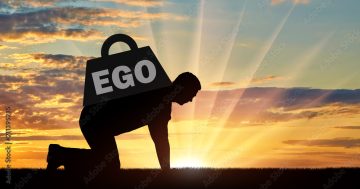Paul Lyons* reveals some lesser-known and surprising characteristics exhibited by people who are truly mentally tough.
 One of the most important characteristics of a mentally tough person is their ability to deal with uncertain surprises — particularly bad ones.
One of the most important characteristics of a mentally tough person is their ability to deal with uncertain surprises — particularly bad ones.
Fear can be addressed through a variety of coping mechanisms. For example, we naturally tend to greet the unknown with a fear of loss.
This tendency biases our thinking and impairs our actions and abilities to intelligently take risks.
Yet, mentally tough people actively resist this tendency. They self-distance by stepping away from a situation.
Wisdom tells them that responding quickly but haphazardly to a crisis is typically more dangerous than a delayed, but more thoughtful response.
That makes such people more successful professionally and better suited for positions of leadership.
Mentally tough people understand the overwhelming power of thoughts.
They recognise, for example, how filling one’s head with criticisms of others wastes mental space better spent strengthening and improving one’s self.
There’s also science to support this great habit of non-judgment.
In particular, researchers have found judging and criticising others establishes and increases (with the extent of judgment) what’s known as the bias blind spot.
That is a psychological predisposition we all have leading us not to see our own mental hang-ups but believing we can magically see the hang-ups of others.
We discount their disagreeing with us as stemming from their own biases.
Although we might perceive such stubbornness as reflecting our own mental strength and conviction, it actually undermines it.
Indeed, our biased way of thinking (in this case, our ‘subjective worldview’) makes us vulnerable to manipulation by those who tell us what we want to hear.
In other words, we become blind sheep to our own illogic.
Yet, in building mental toughness, the habit we want to cultivate involves catching ourselves before passing judgment.
We want to avoid even the slightest criticism of others in an effect to gain mental freedom and clarity of perception.
One positive consequence of not judging, and reducing the bias blind spot is what’s called intellectual humility.
That’s a powerful trait one builds up over time by refusing to trust one’s own thinking.
In other words, the intellectually humble person is aware they might be wrong.
Moreover, the intellectually humble person is willing to be proven wrong without falling apart emotionally.
By combining humility and this sort of mental strength, they open the doorway to learning, avoiding biases and taking advantage of new knowledge.
Mentally tough people recognise that self-pity is a Siren that can lure you to a watery, psychological death.
For every excuse you create, you clone a mental ‘roommate’ who constantly nags at you whenever you face the slightest difficulty.
You’re hungry? Your ‘roommate’ says you must eat. You’re tired? The excuse comes to mind that you can’t possibly work any harder.
By contrast, mentally tough people rid themselves of this enemy early on.
In a study of disabled and seriously ill people, researchers found that few, if any such resilient warriors engaged in self-pity.
Indeed, when compared to people in the study not suffering such afflictions, the disabled and physically ill exhibited markedly less self-pity and greater happiness and wellbeing.
At the same time, although mental toughness requires showing little pity for ourselves, showing pity for others is incredibly powerful.
Contrary to the oft-argued assumption that selfishness is genetic and an inherent part of our nature, researchers have shown mankind’s development is more on the order of ‘survival of the kindest’.
In other words, empathy and sympathy are more necessary for human survival than acrimonious pursuit of survival, self-interest and the pursuit of personal gain.
Practically speaking, the scientists found parents who cultivate and demonstrate empathy and sympathy in their families end up with happier and more resilient children.
Adults too can gain greater resilience and mental strength simply by showing greater compassion towards others and by making this a habit.
*Paul Lyons is an experienced business leader, adviser and coach enjoying a diverse career across Australia and Asia. He can be contacted at [email protected].
This article first appeared on the Mental Toughness blogsite.











